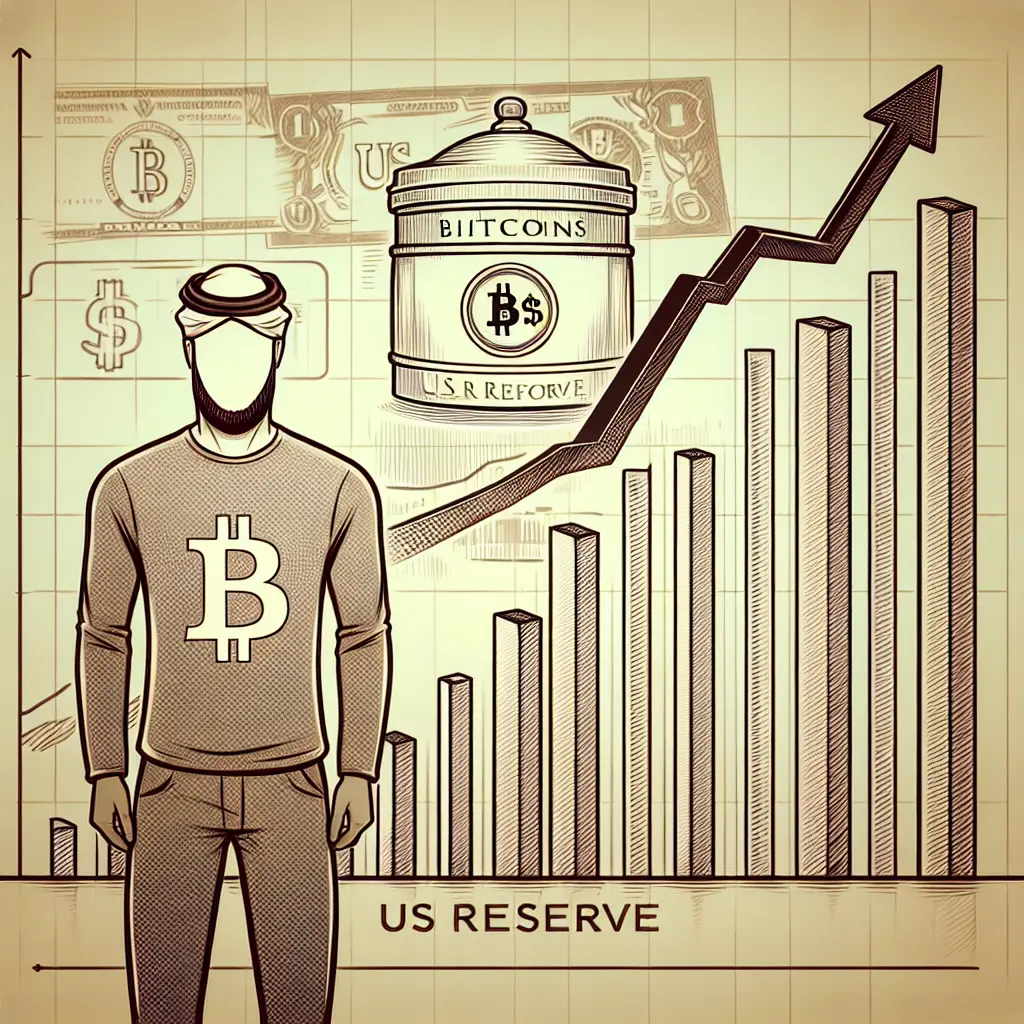In a thought-provoking discussion on the Wealthion network, financial experts delve into the challenging dynamics of inflation and the emerging role of Bitcoin in safeguarding one's financial future. The conversation, led by Anthony Scaramucci and featuring insights from James Lavish, sheds light on the current economic environment and potential strategies for navigating the complexities of fiscal policy and digital currency.
As an institutional investor and managing partner of the Bitcoin Opportunity Fund, James Lavish brings a wealth of experience to the table. His analysis spans recent economic data, historical parallels, and innovative solutions for modern financial challenges. The discourse is timely, given the persistent inflationary pressures signaled by the JOLTS report and ISM services index, which suggest that despite forecasts of an economic slowdown, inflation remains a formidable force.
The narrative turns to political influences that could shape future economic conditions. Lavish discusses deregulation initiatives that may emerge under a potential Trump presidency. Such measures could ease the operational burden on smaller companies, allowing them to thrive amidst less bureaucratic constraints. This deregulation, while controversial, is seen as a catalyst for economic growth, yet it raises questions about long-term sustainability and the broader impacts on inflation.
Drawing parallels with the 1970s inflationary crisis, Lavish highlights stark differences in today's debt-to-GDP ratios. Fiscal policy currently plays a dominant role, with staggering $2 trillion deficits contributing to the inflationary landscape. He paints a picture of two disparate economies: one where wealth accumulation benefits the affluent, and another where middle-class families grapple with escalating living costs and mounting debts.
Lavish warns of the dangers posed by wealth consolidation and inadequate governmental measures to address economic inequality. He suggests systemic reforms, including term limits for politicians, to realign incentives and promote a more equitable economic environment. This perspective challenges policymakers to consider bold strategies to bridge the widening socio-economic gap.
Navigating Inflation and Bitcoin: A Financial Balancing Act
Jerome Powell, Chair of the Federal Reserve, faces an intricate task in steering interest rates amidst high national debt. Lavish underscores Powell's dilemma: curbing inflation without instigating a recession. The dual mandate of maintaining stable prices and full employment requires a nuanced approach, balancing economic stability with growth.
Looking towards the future, Lavish posits that inflation appears unavoidable given the trajectory of national debt and fiscal policies. This positions Bitcoin as a compelling hedge against inflation. As a decentralized digital currency, Bitcoin offers security and trustlessness that rival traditional assets like gold, potentially redefining its role as a store of value in an uncertain financial landscape.
Lavish's insights resonate amidst growing concerns about economic stratification and national debt. His advocacy for digital assets as alternative investments echoes a larger trend within financial markets seeking stability amid volatility. As investors explore new avenues for wealth preservation, understanding the nuances of Bitcoin becomes increasingly crucial.
Concluding this enlightening session, Lavish emphasizes the intricate interplay between governmental policy, economic realities, and financial innovations like Bitcoin. The discussion serves as a poignant reminder of the importance of proactive financial planning and diversification in an ever-evolving global economy.
Bitcoin's Emerging Role in Financial Strategy
Lavish’s detailed exploration into Bitcoin’s potential reflects a shift towards digital assets as viable components of investment portfolios. As traditional financial systems face mounting pressures, Bitcoin offers an intriguing alternative, promising stability and security through decentralized technology.
Extended discussions around Bitcoin highlight its potential to challenge conventional financial paradigms. As more investors recognize its merits, Bitcoin’s integration into mainstream financial strategies seems increasingly plausible. Its capacity to function independently of central banks underscores its appeal as an asset resistant to inflationary erosion.
In wrapping up, this conversation reinforces the necessity of understanding diverse investment vehicles in today’s economic environment. As fiscal challenges mount, embracing innovation in financial planning becomes not just prudent but essential.
Ultimately, this session encapsulates a forward-thinking approach to navigating fiscal uncertainties. It underscores the pivotal role of strategic investments and innovative financial thinking in securing one’s financial future amidst global economic shifts.
Stay informed and explore these insights further by tuning into Wealthion’s expert analyses and discussions.
Like and subscribe to Wealthion on YouTube here.









Leave a Comment